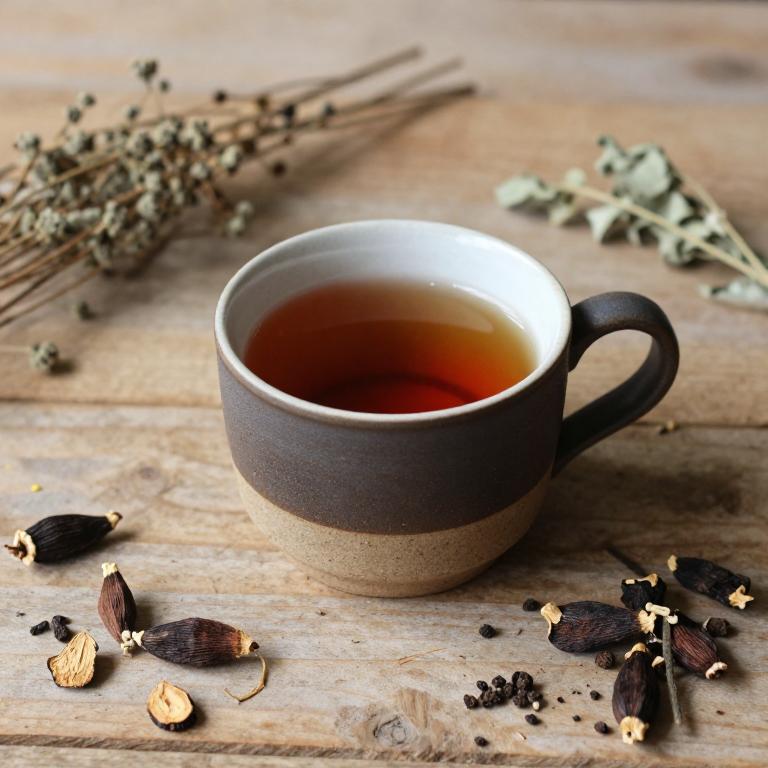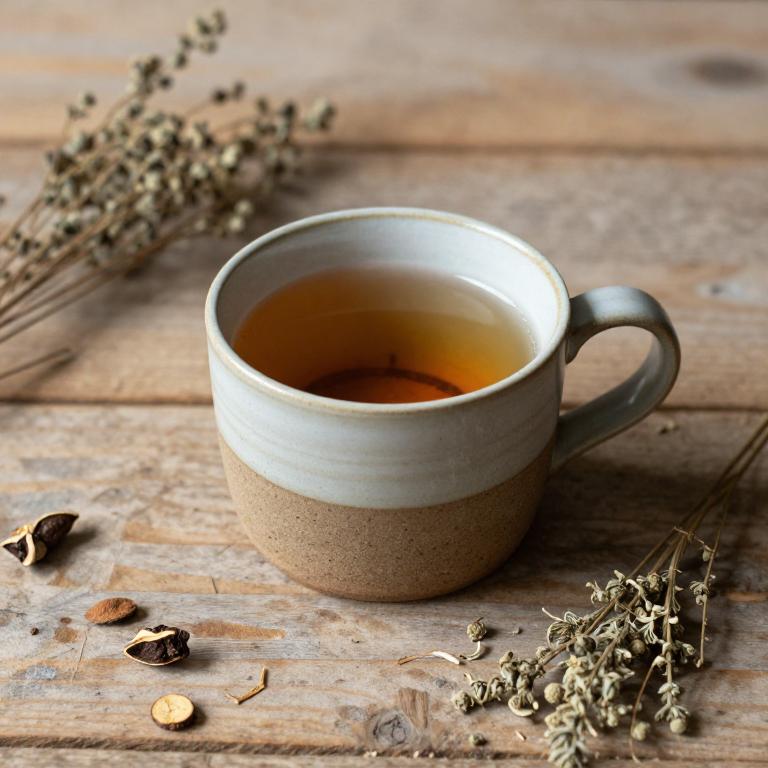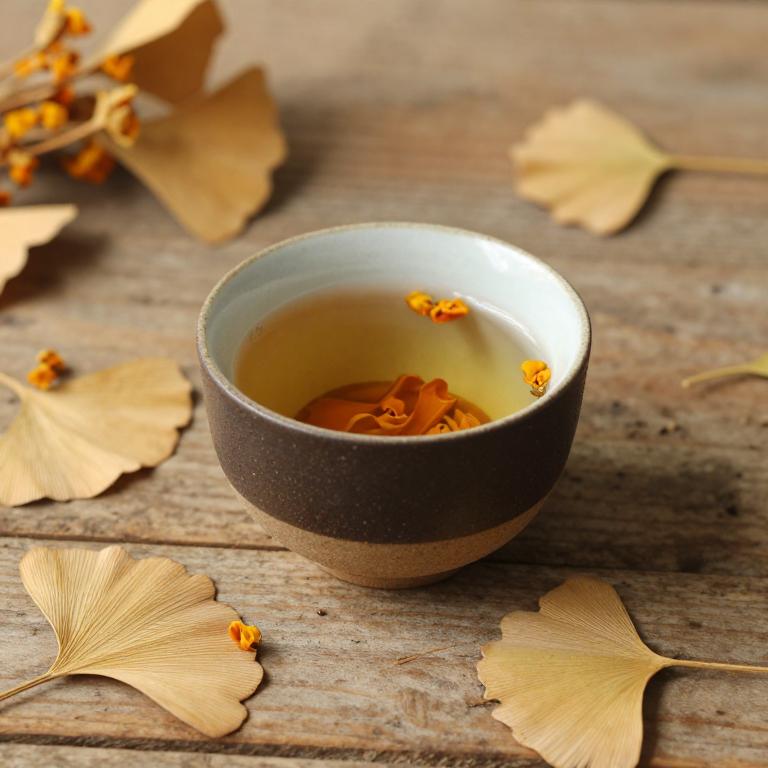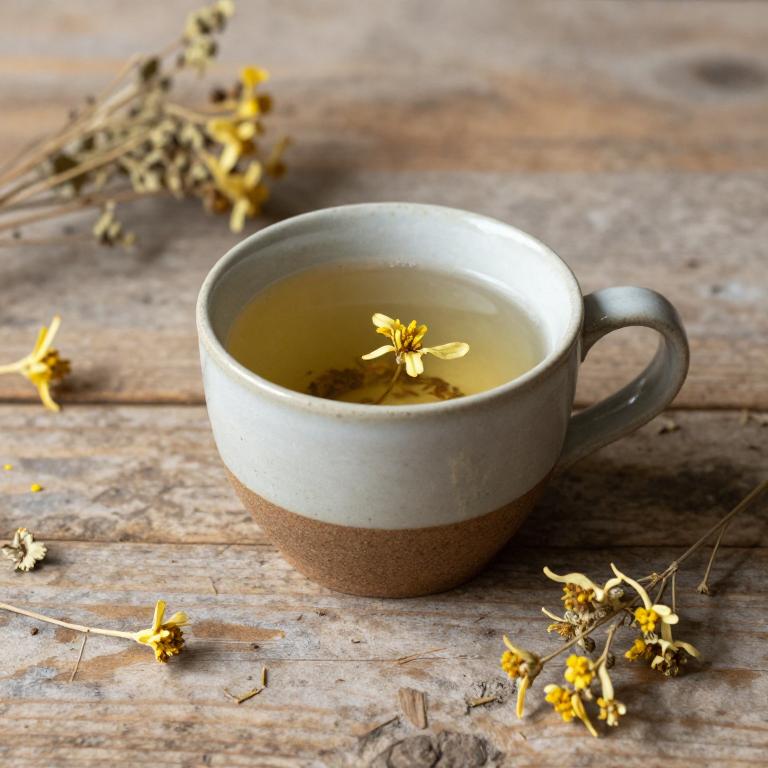10 Best Herbal Teas For Headaches

Herbal teas are a natural and soothing remedy for headaches, offering a gentle alternative to pharmaceutical treatments.
Common ingredients such as peppermint, ginger, chamomile, and lavender are known for their calming and pain-relieving properties. Peppermint tea, for example, can help alleviate tension headaches by relaxing the muscles and improving blood flow. Ginger tea is effective in reducing inflammation and nausea often associated with headaches, while chamomile promotes relaxation and can ease stress-related headaches.
Drinking herbal teas is not only beneficial for symptom relief but also supports overall wellness through their antioxidant and anti-inflammatory benefits.
Table of Contents
- 1. Chamomile (Matricaria chamomilla)
- 2. Chaste tree (Vitex agnus-castus)
- 3. Salvia (Salvia officinalis)
- 4. Black pepper (Piper nigrum)
- 5. Ceylon cinnamon (Cinnamomum verum)
- 6. Stinging nettle (Urtica dioica)
- 7. Rosemary (Rosmarinus officinalis)
- 8. Ginkgo (Ginkgo biloba)
- 9. Echinacea (Echinacea purpurea)
- 10. Valerian (Valeriana officinalis)
1. Chamomile (Matricaria chamomilla)

Matricaria chamomilla, commonly known as chamomile, is a popular herbal tea used for its soothing and calming properties.
It is often recommended for relieving headaches due to its mild sedative effects and anti-inflammatory properties. The essential oils in chamomile, such as bisabolol and chamazulene, contribute to its ability to reduce tension and ease muscle spasms, which can be a cause of headaches. Drinking chamomile tea regularly may help prevent recurring headaches and promote overall relaxation.
However, it is advisable to consult a healthcare professional before using it for persistent or severe headaches.
2. Chaste tree (Vitex agnus-castus)

Vitex agnus-castus, commonly known as chasteberry, has been traditionally used in herbal medicine to support hormonal balance and alleviate symptoms associated with menstrual disorders.
Herbal teas made from vitex agnus-castus are often recommended for headaches, particularly those linked to hormonal fluctuations such as premenstrual syndrome (PMS) or menopause. The herb is believed to influence the pituitary gland, which may help regulate hormone levels and reduce tension or migraines. While scientific research on its efficacy for headaches is limited, many users report a calming effect and improved mood, which can indirectly ease headache symptoms.
As with any herbal remedy, it is advisable to consult a healthcare professional before use, especially for individuals with existing health conditions or those taking medications.
3. Salvia (Salvia officinalis)

Salvia officinalis, commonly known as sage, has been traditionally used in herbal teas to alleviate headaches due to its anti-inflammatory and analgesic properties.
The essential oils in sage leaves, such as thujone and cineole, are believed to help reduce tension and improve circulation, which can ease headache symptoms. When brewed into a calming tea, sage can soothe the nervous system and promote relaxation, making it a natural remedy for stress-related headaches. It is often combined with other herbs like peppermint or chamomile to enhance its effectiveness.
However, it is important to consult a healthcare professional before using sage regularly, as it may interact with certain medications or have side effects in higher doses.
4. Black pepper (Piper nigrum)

Piper nigrum, commonly known as black pepper, is often used in herbal teas to alleviate headaches due to its potential analgesic and anti-inflammatory properties.
The active compound in black pepper, piperine, may help improve circulation and reduce tension in the blood vessels, which can contribute to headache relief. While research on its efficacy for headaches is limited, many people find that drinking black pepper tea can soothe migraines or tension headaches when consumed in moderation. To prepare the tea, simply steep a pinch of black pepper in hot water for several minutes, and optionally add honey or lemon for added flavor.
Although generally safe, it is advisable to consult a healthcare professional before using black pepper tea, especially for those with gastrointestinal issues or on medication.
5. Ceylon cinnamon (Cinnamomum verum)

Cinnamomum verum, commonly known as true cinnamon, is often used in herbal teas to help alleviate headaches due to its mild analgesic and anti-inflammatory properties.
The essential oils in cinnamon, particularly cinnamaldehyde, may help reduce pain and inflammation associated with tension headaches. When brewed into a warm tea, cinnamon can promote relaxation and improve blood circulation, which may ease headache symptoms. It is typically combined with other calming herbs like ginger or peppermint to enhance its soothing effects.
However, while cinnamon tea is generally safe, excessive consumption may cause gastrointestinal discomfort, so it should be used in moderation.
6. Stinging nettle (Urtica dioica)

Urtica dioica, commonly known as stinging nettle, is a herbal remedy that has been traditionally used to alleviate headaches and other inflammatory conditions.
When brewed into a tea, stinging nettle contains compounds such as flavonoids and antioxidants that may help reduce inflammation and ease tension in the head and neck area. Its diuretic properties can also help by reducing fluid retention, which may contribute to headaches in some individuals. However, it is important to consult with a healthcare professional before using stinging nettle tea, especially for those with kidney issues or on medication.
Despite its potential benefits, the effectiveness of urtica dioica tea for headaches can vary, and it should be used as a complementary rather than a primary treatment.
7. Rosemary (Rosmarinus officinalis)

Rosmarinus officinalis, commonly known as rosemary, is a popular herb used in herbal teas to help alleviate headaches.
The essential oils in rosemary, particularly camphor and cineole, are believed to have analgesic and anti-inflammatory properties that may reduce headache intensity. Drinking rosemary tea can promote relaxation and improve blood circulation, which may help ease tension headaches. It is often recommended for its refreshing aroma and calming effects, making it a natural remedy for stress-related headaches.
However, it is important to consult with a healthcare professional before using rosemary tea, especially for those with medical conditions or taking medications.
8. Ginkgo (Ginkgo biloba)

Ginkgo biloba herbal tea is often used to alleviate headaches due to its potential to improve blood circulation and enhance cognitive function.
The tea is derived from the leaves of the ginkgo tree, which has been used in traditional Chinese medicine for centuries. It contains antioxidants and flavonoids that may help reduce inflammation and support brain health, potentially easing tension headaches. While some studies suggest it may be beneficial, more research is needed to confirm its effectiveness for headache relief.
As with any herbal remedy, it's advisable to consult a healthcare professional before use, especially if you're taking other medications.
9. Echinacea (Echinacea purpurea)

Echinacea purpurea, commonly known as purple coneflower, is a popular herbal remedy often used in teas to support immune health.
While it is well-known for its potential to reduce the severity and duration of colds, some people also use echinacea tea for headaches, believing it may help alleviate mild to moderate pain. The herb is thought to have anti-inflammatory and antioxidant properties that could contribute to its effectiveness in reducing headache symptoms. However, scientific evidence supporting its use specifically for headaches is limited, and results may vary among individuals.
As with any herbal remedy, it is advisable to consult a healthcare professional before using echinacea tea, especially if you have underlying health conditions or are taking other medications.
10. Valerian (Valeriana officinalis)

Valeriana officinalis, commonly known as valerian, is a traditional herbal remedy that has been used for centuries to alleviate various ailments, including headaches.
The herb contains compounds such as valerenic acid and isol valerenic acid, which are believed to have calming and sedative effects on the nervous system. Valerian tea is often prepared by steeping the dried roots of the plant in hot water, and it is typically consumed in the evening due to its mild sedative properties. While some studies suggest that valerian may help reduce the frequency and severity of headaches, particularly tension headaches, more research is needed to fully understand its efficacy.
As with any herbal remedy, it is advisable to consult a healthcare professional before use, especially for individuals with existing medical conditions or those taking other medications.